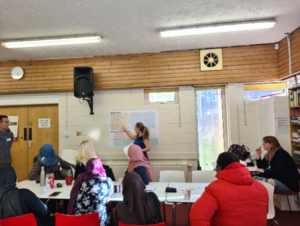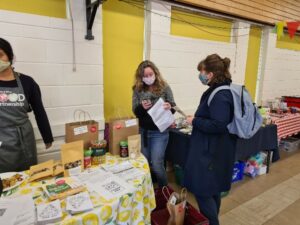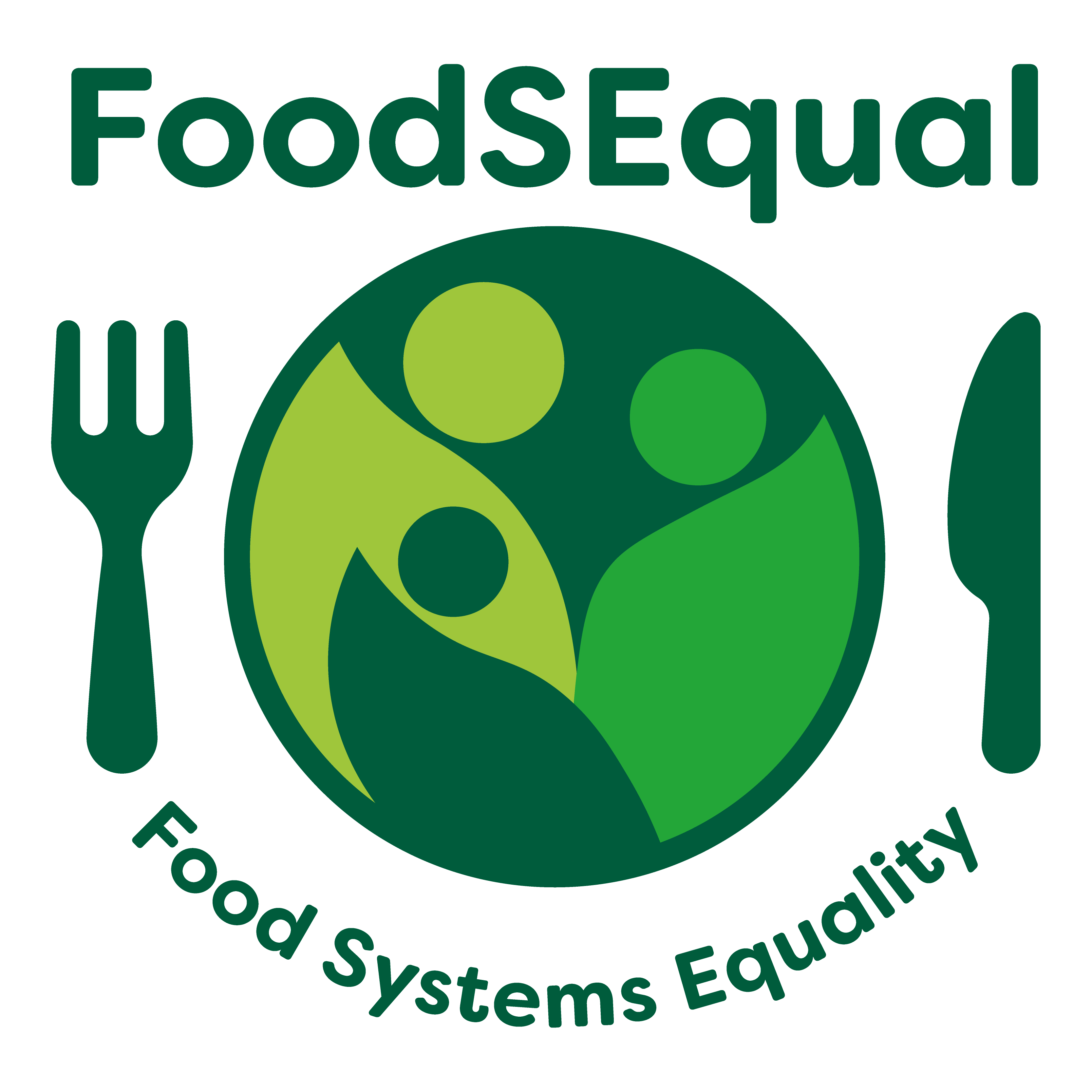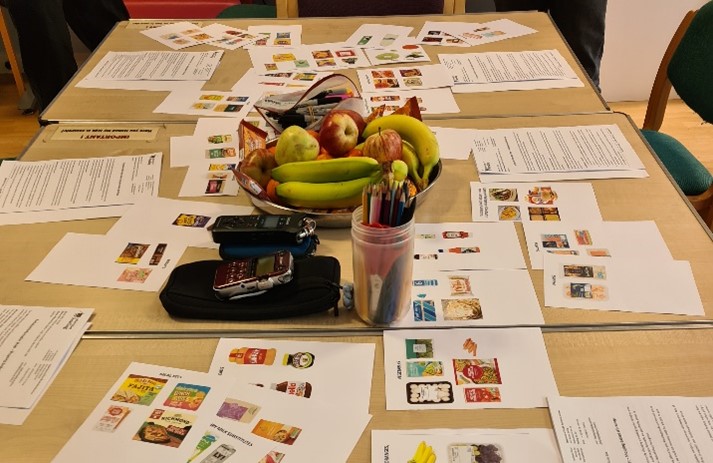Community Food Research in Brighton and Hove – What we have learnt
Amanda Lucas, Sara Fernee, Holly Cranfield – Community Food Researchers
The Brighton and Hove Food Partnership’s Community Researchers have been working on a national Food Systems Equality project called FoodSEqual. In this blog we chat about what we have learned from listening to local communities.
The beginning of 2022 presented us with a challenge: to rebuild and reconnect after the Covid lockdowns. Through various activities we met and engaged with a range of community shop customers in social settings. We surveyed, hosted focus groups, and attended farm visits locally.
We heard that local people:
- are generous in talking about their food lives
- care about affordable and sustainable choices
- are interested in discussing food systems
- (some) would like to learn more about cooking, growing and seasonality
- are affected by what retail options are local
- (some) perceive food related stigma
- want transparency on labels (pesticides etc)
- think better school food education is important
- value sharing and connecting around food
Sharing food experiences
On the whole, people like to be engaged and asked about their opinions and experiences around food, some shared really personal insights.
Amanda “Talking with people at workshops and farm visits I heard concerns and difficulties in finding affordable, healthy and sustainable food were common issues affecting all walks of life. Listening to people’s stories was an eye opener as to the lengths some were willing to go to source and prepare meals”
Holly “People were worried about being judged on their food choices for themselves and their families, but often felt they had little choice due to rising costs and lack of culinary knowledge”
Sara “Some wanted to reconnect with seasonal eating, learn more about how food is grown and how to cook from fresh”

Looking for better food choice
Choice, sustainability, affordability and availability were common themes from the focus groups. People want greater access to beans/pulses, fish, fresh fruit and veg, dairy free, meat free, allergy appropriate, culturally/ethnically appropriate foods.
Amanda “Lack of variety and availability was a common topic, as was the desire to use more seasonal food stuffs including fresh, affordable local fish. Some of the older participants shared memories of a once thriving fishing community in Brighton”
Sara “We’ve learned that people miss having access to local fruit and veg and would like more clear information about where their food comes from, how its grown, caught, reared and stored”

Challenges and compromises
Through our focus groups and involvement with community shops we were able to discuss and learn about people’s food concerns, aspirations, and realities.
Amanda “Talking to other community members at my local Community shop made me realise how many people had come to rely on this project, and that they were genuinely worried about keeping their heads above water. Many had quickly adapted their cooking and menu planning by eating more pulses and less meat whilst reducing food waste. More cost-effective cooking methods were also being explored as the energy prices increased”
Sara “People feel restricted around choice: often having to make unhelpful compromises for example in order to access fresh fruit and veg they go the most cost-effective supermarkets:, but where produce often comes in lots of plastic packaging, from miles away, and with unknown pesticides”
Holly: “People talked about how they were changing what they consume, how their meals were dictated by what was available at food banks and other alternative food sources and what they could afford to purchase”
Community learning and school food education
The local farm visits allowed us to talk with people in a relaxed outdoor setting.
Amanda “My work with FoodSEqual and with my local community has shown me that there seems to be an inequality when it comes to growing our own food. We don’t all have access to growing spaces and the skills to use them if we do. I met younger people who really wanted to learn more and involve their families”
Sara “People have shared their concerns that education around cooking is lacking in schools– particularly cooking with fresh ingredients. In the community, we found a wide range of cooking abilities and confidence; people would value more opportunities to share skills and ideas around cooking, as a way to connect as well as learn”
Summary
Looking back over our activities during 2022 gave us the opportunity to reflect on what we have learnt in order to inform future research.
Sara: “While the range of people we have spoken to has been very varied in terms of culture, education, age, housing situation, family size etc, their voices have been clear and united in the call for better access to healthy, fresh and affordable food. People are keen to share ideas about how this could be achieved”
Amanda: “People were genuinely concerned about where their fresh vegetables came from and expressed a desire to eat seasonal and locally grown food, but their choices were limited by what was on offer. A lack of locally sourced fish was also a common topic of conversation”
Holly: “People of Brighton and Hove want better things for their food experiences; access to a more affordable healthy range of food that doesn’t negatively impact the planet”
Find out more
sign up for our newsletter or watch our social media channels for more info. We will be helping to run more workshops in the future.
For more information about the project, or to be contacted about how to be involved in future workshops please contact:
Shelley@bhfood.org.uk, 07935481677
Website | Newsletter | Twitter | Facebook | Instagram
Community Food Research in Brighton and Hove – What we have learnt


